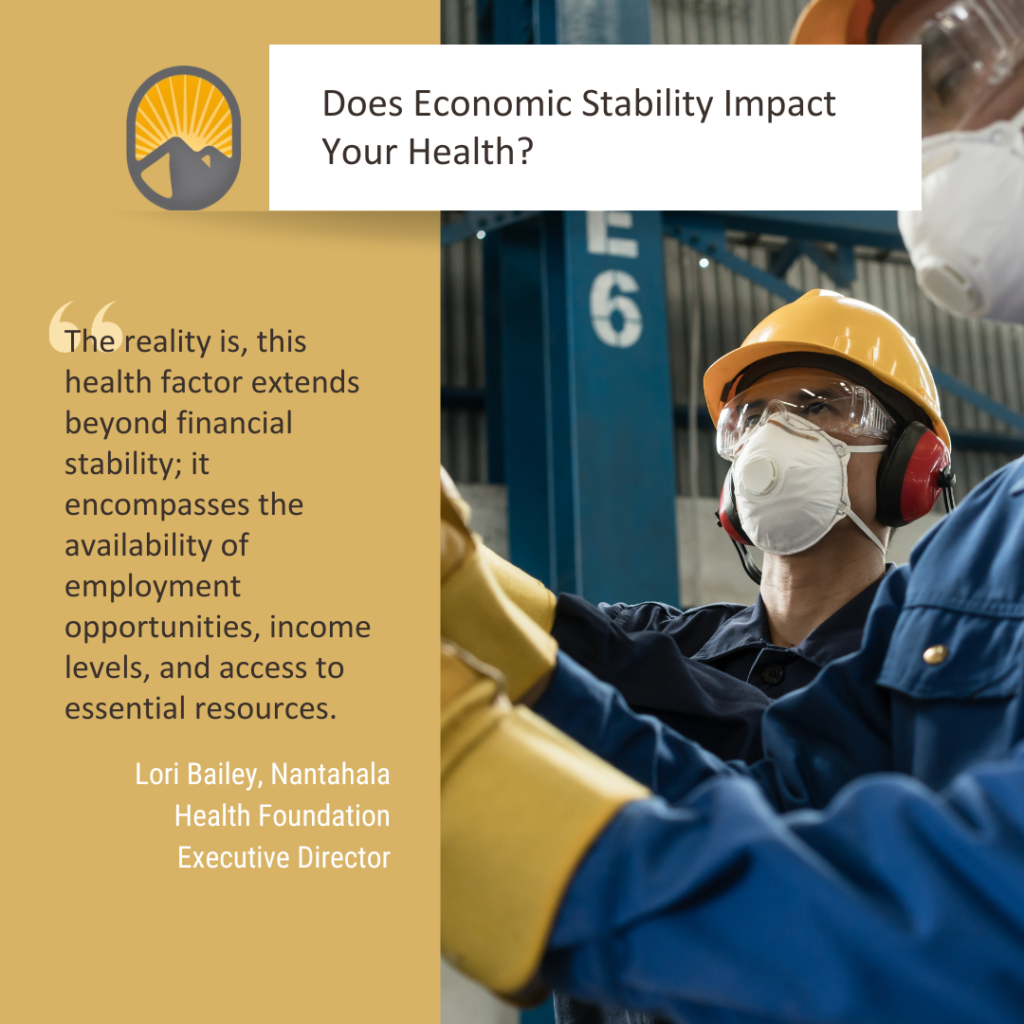This is the second in a five-part series being published in newspapers throughout Western North Carolina. Our aim with this series is to expand the public’s understanding of social drivers of health and the struggles individuals face when they are unable to modify these factors.
We are grateful for the media’s support and for helping us share this informational series.

An individual’s economic stability stands as a critical social driver of their health. Additionally, such stability is intricately woven into the fabric of community well-being and vitality.
“The reality is, this health factor extends beyond financial stability; it encompasses the availability of employment opportunities, income levels, and access to essential resources,” said Lori Bailey, Executive Director of Nantahala Health Foundation, which partnered with Duke Energy Foundation in 2022 to fund an economic development refresh project that benefited 11 Dillsboro businesses. “The profound influence of economic stability on health is a testament to the intricate relationship between socio-economic conditions and overall well-being.”
Economic stability significantly impacts living conditions. Affordable housing and a stable income are essential for securing safe environments that protect against exposure to health hazards, infectious diseases, and unsafe living conditions. A lack of economic stability can lead to substandard housing and overcrowded living arrangements, both of which contribute to physical and mental health issues.
Additionally, economic stability directly affects an individual’s ability to access quality healthcare services, a topic that will be covered in greater detail in Part Four of this series, said Bailey. Adequate income and insurance coverage enable timely medical care, preventive measures, and necessary treatments, thereby reducing the risk of chronic illnesses and complications. Individuals facing financial constraints are more likely to delay or forgo medical care, which can lead to worsening health conditions and increased healthcare costs in the long run.
“Furthermore, the stress associated with financial instability can detrimentally affect health. Chronic stress arising from economic insecurity can trigger physiological responses that elevate the risk of cardiovascular diseases, weaken immune systems, and exacerbate mental health disorders such as anxiety and depression,” she said. “Financial worries can dominate an individual’s thoughts, diverting attention from self-care and healthy lifestyle choices.”
Moreover, economic stability influences educational attainment and employment opportunities. Higher income levels enable access to quality education, which in turn equips individuals with better job prospects and skills for personal development, Bailey continued. Stable employment not only provides a source of income but also fosters a sense of purpose and social connections, thereby positively influencing mental health.
The impact of economic stability extends to community health as well. Vibrant local economies with adequate employment opportunities contribute to reduced crime rates and increased social cohesion, creating environments that support healthy lifestyles and overall well-being, she said.
“Economic stability is undeniably a pivotal social driver of health, wielding profound effects on an individual’s ability to access healthcare, live in safe environments, manage stress, and make healthy choices,” Bailey said. “Recognizing the intricate relationship between economic stability and health underscores the importance of comprehensive policies and strategies that address income inequality, affordable housing, and employment opportunities. By fostering economic security, societies can uplift the health and well-being of their citizens, promoting a more equitable and prosperous future.”
